Tomasz Tajmajer
Improving Hearthstone AI by Combining MCTS and Supervised Learning Algorithms
Aug 14, 2018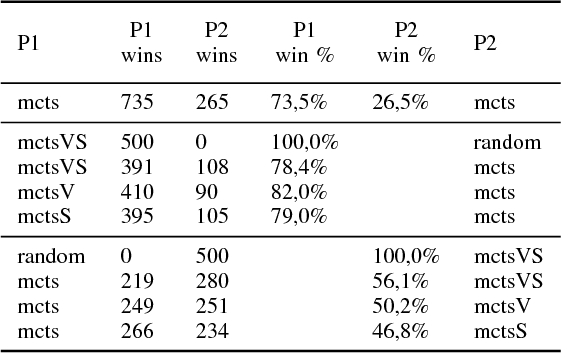
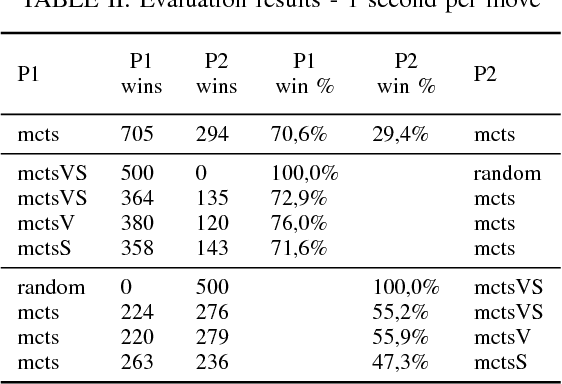
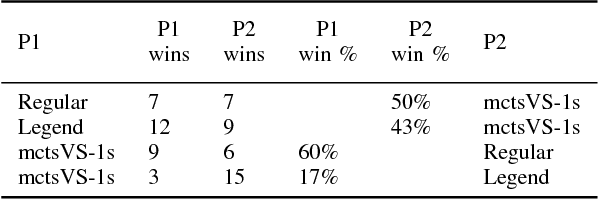
Abstract:We investigate the impact of supervised prediction models on the strength and efficiency of artificial agents that use the Monte-Carlo Tree Search (MCTS) algorithm to play a popular video game Hearthstone: Heroes of Warcraft. We overview our custom implementation of the MCTS that is well-suited for games with partially hidden information and random effects. We also describe experiments which we designed to quantify the performance of our Hearthstone agent's decision making. We show that even simple neural networks can be trained and successfully used for the evaluation of game states. Moreover, we demonstrate that by providing a guidance to the game state search heuristic, it is possible to substantially improve the win rate, and at the same time reduce the required computations.
Modular Multi-Objective Deep Reinforcement Learning with Decision Values
Feb 22, 2018



Abstract:In this work we present a method for using Deep Q-Networks (DQNs) in multi-objective environments. Deep Q-Networks provide remarkable performance in single objective problems learning from high-level visual state representations. However, in many scenarios (e.g in robotics, games), the agent needs to pursue multiple objectives simultaneously. We propose an architecture in which separate DQNs are used to control the agent's behaviour with respect to particular objectives. In this architecture we introduce decision values to improve the scalarization of multiple DQNs into a single action. Our architecture enables the decomposition of the agent's behaviour into controllable and replaceable sub-behaviours learned by distinct modules. Moreover, it allows to change the priorities of particular objectives post-learning, while preserving the overall performance of the agent. To evaluate our solution we used a game-like simulator in which an agent - provided with high-level visual input - pursues multiple objectives in a 2D world.
Helping AI to Play Hearthstone: AAIA'17 Data Mining Challenge
Aug 02, 2017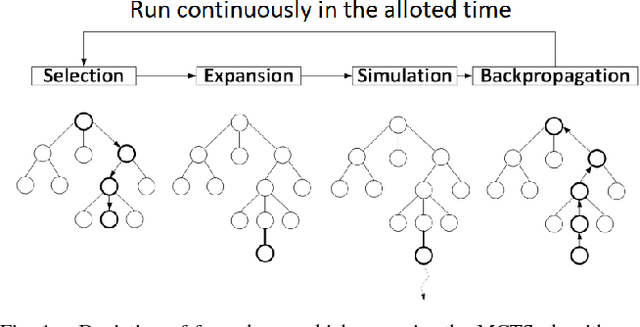
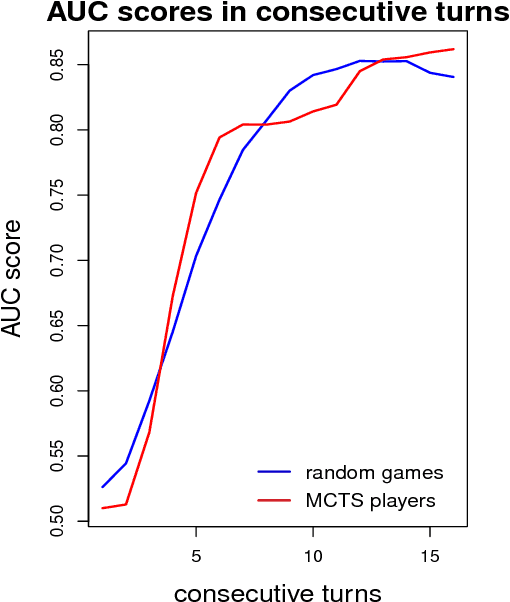
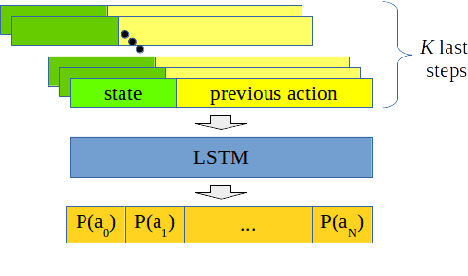
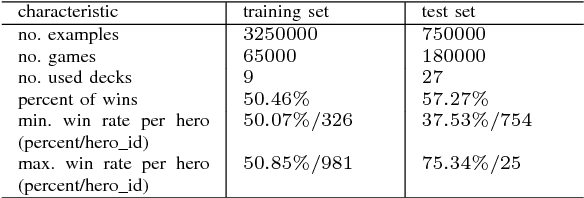
Abstract:This paper summarizes the AAIA'17 Data Mining Challenge: Helping AI to Play Hearthstone which was held between March 23, and May 15, 2017 at the Knowledge Pit platform. We briefly describe the scope and background of this competition in the context of a more general project related to the development of an AI engine for video games, called Grail. We also discuss the outcomes of this challenge and demonstrate how predictive models for the assessment of player's winning chances can be utilized in a construction of an intelligent agent for playing Hearthstone. Finally, we show a few selected machine learning approaches for modeling state and action values in Hearthstone. We provide evaluation for a few promising solutions that may be used to create more advanced types of agents, especially in conjunction with Monte Carlo Tree Search algorithms.
 Add to Chrome
Add to Chrome Add to Firefox
Add to Firefox Add to Edge
Add to Edge